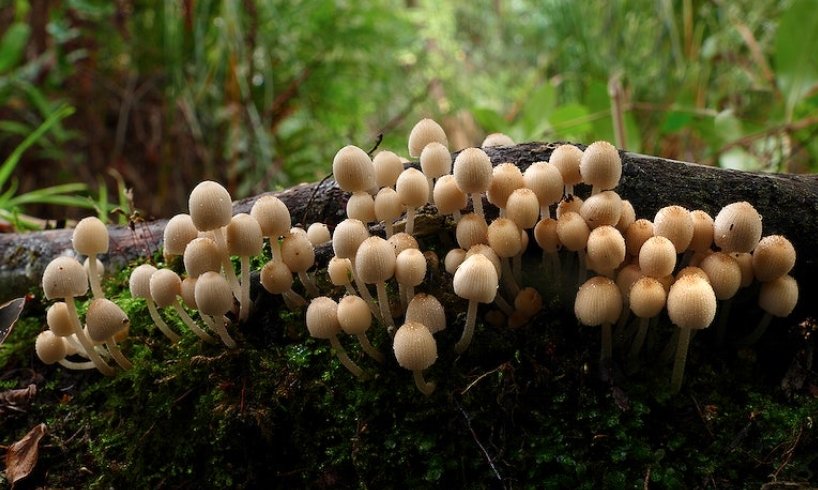A New Policy Resolution Passed By The City Council
The city of Salem, Massachusetts, has joined the growing list of municipalities in the state that have adopted a policy resolution to decriminalize natural psychedelics. The resolution, which was passed by the city council on Monday, February 5, 2024, declares that the investigation and arrest of individuals for possessing, cultivating, or distributing entheogenic plants and fungi should be the lowest law enforcement priority
The resolution also urges the state legislature to enact laws that would allow the legal use of natural psychedelics for medical, therapeutic, religious, spiritual, and personal purposes. Additionally, the resolution calls for the creation of a working group to study the potential benefits and risks of psychedelics, as well as the best practices for ensuring safe and responsible access
The resolution was sponsored by Councilor Lisa Peterson, who said she was inspired by the personal stories of people who have used psychedelics to heal from trauma, depression, anxiety, and addiction. She also cited the scientific evidence that supports the therapeutic potential of these substances, as well as the historical and cultural significance of their use by indigenous communities
“I think it’s important for us to recognize that there are alternative ways of healing and that we should not criminalize people for seeking those ways,” Peterson said. “I think it’s also important for us to acknowledge the history of oppression and colonization that has led to the prohibition of these plants and fungi, and to respect the rights of people to practice their own spirituality and culture.”
A Growing Movement Across The State And The Nation
Salem is the eighth city in Massachusetts to adopt a similar resolution, following Somerville, Cambridge, Easthampton, Northampton, Amherst, Holyoke, and Boston These cities are part of a larger movement across the nation that aims to reform the laws around psychedelics, which are currently classified as Schedule I substances by the federal government, meaning they have no accepted medical use and a high potential for abuse

However, several states and cities have challenged this classification and have taken steps to decriminalize or legalize psychedelics for various purposes. For example, Oregon became the first state to legalize psilocybin, the active ingredient in magic mushrooms, for supervised therapeutic use in 2020 Colorado followed suit in 2022, with a similar measure Washington, D.C., Denver, Oakland, Santa Cruz, Ann Arbor, and Seattle are some of the cities that have decriminalized natural psychedelics for personal use.
Moreover, there is a growing body of research that shows that psychedelics can have positive effects on mental health, especially for conditions that are resistant to conventional treatments. For instance, psilocybin has been shown to reduce symptoms of depression, anxiety, and addiction, as well as to enhance well-being, creativity, and spirituality. Other psychedelics, such as ayahuasca, mescaline, and ibogaine, have also demonstrated therapeutic potential for various psychological and physical ailments.
A Push For Changes To The Pending State Ballot Initiative
The resolution passed by the Salem city council also expresses support for a pending state ballot initiative that would decriminalize natural psychedelics statewide, as well as establish a regulatory framework for their therapeutic use. The initiative, which is being spearheaded by the Massachusetts Coalition for Natural Healing, is expected to appear on the November 2024 ballot, if it gathers enough signatures from voters.
However, the resolution also proposes some changes to the initiative, based on the feedback from the working group and the community. These changes include:
- Expanding the definition of natural psychedelics to include all plants and fungi that contain psychoactive compounds, not just those listed in the initiative.
- Removing the requirement for a medical diagnosis or referral to access psychedelics for therapeutic purposes, and allowing people to self-determine their need for healing.
- Creating a licensing system for facilitators, guides, and sitters who would assist people in using psychedelics safely and responsibly, and ensuring that they receive adequate training and education.
- Establishing a community oversight board that would monitor and evaluate the implementation and impact of the initiative, and make recommendations for improvement
Peterson said she hopes that these changes would make the initiative more inclusive, accessible, and effective for the people of Massachusetts. She also said she hopes that the resolution would spark a dialogue and a collaboration among the cities, the state, and the coalition, to create a comprehensive and compassionate policy around psychedelics
“I think this is a very important issue that affects a lot of people, and I think we have an opportunity to be leaders in this field and to create a model that other states and cities can follow,” she said. “I think we have a lot of work to do, but I’m very optimistic and excited about the possibilities.”



